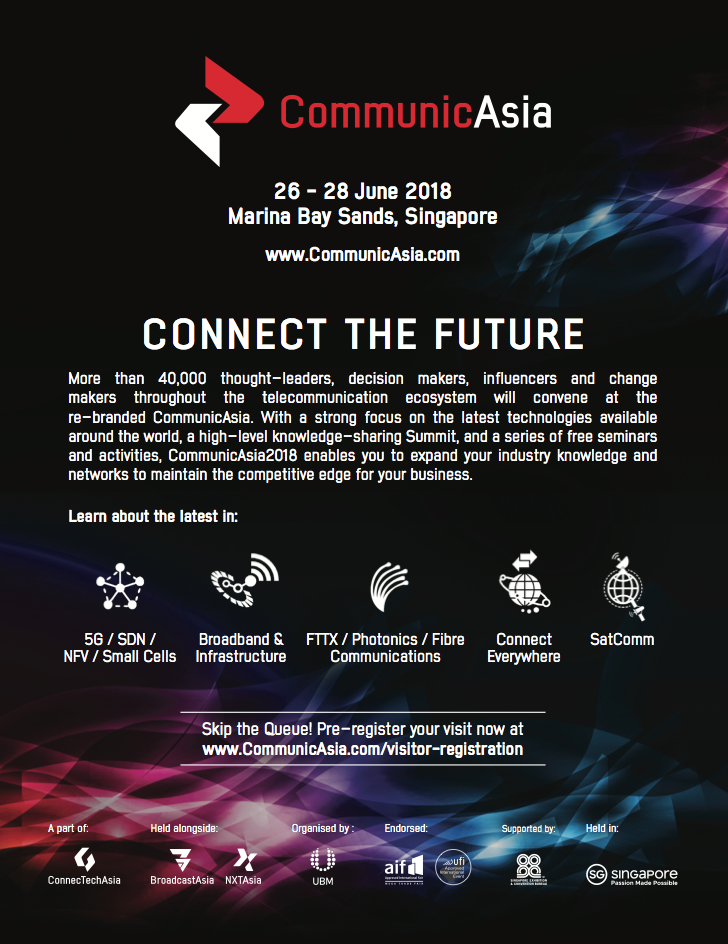Catherine Melquist (CM)
I’ve seen a lot of recent news and activity featuring Globalstar.... from press releases to conference speakers to Facebook posts. Globalstar feels like a hub of new energy, as though the company is going through some form of Renaissance. Am I correct about this and, if so, what’s going on at Globalstar?

Dave Kagan (DK)
Globalstar is going through a rejuvenation of our business mainly because of the explosive growth of IoT opportunities. What we’re seeing is the demand for more and more “IoT-sized” data solutions where we have the perfect constellation and end-user devices to provide appropriately priced service plans and user devices.
The Globalstar team is running full throttle and we will launch at least four new products by the end of 2018. We have command of our cost structure, we’re focused on our mission and, as you can see from our operating results, we are delivering on our promises.
CM
What is your role in all of this? And, how has your background in the satellite industry led you to this point?
DK
Jay Monroe is the CEO and I’m running the day-to-day sales, marketing and operations as the President and Chief Operating Officer. I’m fortunate to have held a broad spectrum of positions in my 21 years in the satellite industry.

Prior to joining the satellite industry, I worked for Norwegian Cruise Line for 10 years as the VP of Finance & Treasurer and we were one of Maritime Telecommunications Network’s (MTN) first customers. I went on to become the CEO of MTN for 12 years, which as you know, was one of the most successful niche satellite service providers delivering FSS services to the world’s leading cruise companies, the U.S. government, as well as the demanding super-yacht owners.
I later went on to become the CEO of Globe Wireless (sold to Inmarsat) which provided me with the opportunity to gain an understanding of MSS business models. My short tenures at both ITC Global (sold to Panasonic) and Speedcast also provided me with great experience in the energy market, which is now paying dividends for Globalstar. Altogether my past experiences have led me to assume my current position at Globalstar.
CM
Thinking broadly about trends in the mobile connectivity space (e.g. influx of new LEO systems, new terminal innovations, the rise in data analytics and cyber security firms, etc.), what changes do you feel will make the greatest impact on the future mobile connectivity business and what do these changes mean to Globalstar?
DK
I believe we’re seeing a convergence of the FSS and MSS business models, as well as GEO and LEO solutions. All categories of satellite systems/solutions have their place in the market and we’re able to provide absolute mobility very economically which none of the other major market players do because of their architectures, higher frequency spectrum bands or both.
At Globalstar, we always consider the end customer and their applications first and foremost. We will not simply design satellites to be the biggest, fastest or the cheapest, just because the technology exists. We consider what problems we are trying to solve for the ultimate customer, the cost and therefore the marketability of the user terminal, implications of the gateway equipment/operations and cost matrix in order to deliver an effective solution that drives return on investment for our shareholders. Based on the current activity in the market I’m not so sure that all the new LEO entrants agree with my holistic philosophy.
CM
What’s in your immediate plan for developing the satellite mobility market?

DK
Clearly it is IoT opportunities and cost effective 2-way communication solutions. We believe that our just released 2-way messaging device, duplex satellite hot spot, as well as our solar simplex data device, will drive incredible growth for us into the future. We’re excited about the market opportunities going forward.
CM
As Globalstar continues to iterate its business, what technology or service innovations will or are helping you to do this?
DK
We’re seeing the decreasing size and cost of end-user devices enabling us to address markets that were otherwise unreachable. Software and hardware technology developments will of course continue to drive innovation and we plan to continuously evolve our products to take advantage of such innovation. In addition to products mentioned previously, we will be launching solar animal tracking devices, wearables, and two-way data/tracking devices in the coming months.
CM
Is there anything happening in an adjacent market (e.g., telecom, energy, etc.) that’s of interest to the Globalstar business?
DK
I think this question really goes back to the explosive demand for more and more IoT driven data. The automotive industry is clearly investing billions of dollars in its autonomous car initiatives.
I recently attended the CES show in Las Vegas and I would guess in excess of 30 percent of that exhibition was focused on the “connected car.” This is one of the reasons why we just announced our connected car initiative, Globalstar Automotive.

We believe that we can play a significant role in improving the accuracy of GPS signals, as well as in the safety and emergency services area. We also believe we can play a meaningful role in the Over the Air (OTA) software updates to vehicles, as well.
As far our safety services aspirations on vehicles, one must realize that nearly 6,000 rescues have been initiated due to the use of our SPOT devices and handsets over the last 10 years accounting for thousands of lives saved. We can easily adapt our technology to be used on vehicles to automatically send a distress (S.O.S.) signal upon an airbag deployment or roll-over. We are in extensive discussions right now with automobile manufacturers as well as Tier One suppliers to the automotive industry.
CM
How important is system interoperability to your users and if important, what forms (e.g., frequency, altitudes, commands) are your customers talking about?
DK
Our customers want their data delivered where and when they want it. They want it done affordably and reliably and they really don’t care about what technology is used to deliver their service. I know this sounds blunt, but in the end I believe this to be true and that’s the way we approach the design of our products and solutions.
CM
Given MSUA’s focus on “mobility,” I’m curious to know your favorite form(s) of mobility when not working on satellite?
DK
I’m an avid cyclist and racquetball player. At some point in my life I would love to ride my road bike at least 200 miles per week. I love the outdoors, the mechanical nature of a bicycle, and the beautiful scenery.
CM
If you were going to select someone in the industry who should next be interviewed, who should that be, and why?
DK
I would interview top executives from the automobile industry because of their autonomous car initiatives which, in turn, will generate massive data demands. This one market will have a dramatic impact on the satellite industry well into the future.
CM
Thanks Dave, I think it is really interesting to hear how prevalent the Connected Car issue was at this year’s CES conference and I imagine more satellite players will be attending next year’s show.

President of the Mobile Satellite Users Association, Catherine spearheads the group’s mission to promote mobility market development and mobility innovation. With over 25 corporate and small business members representing all levels of the satellite value chain as well as end-users, MSUA collaborates with conference organizers around the world to facilitate panels and keynote speakers that decipher mobility market dynamics including: growth opportunities, strategic partnership, barriers to progress, application aspirations, adjacent market influences and more. Catherine Melquist is a strategic marketer with more than two decades of experience developing marketing and PR strategies for global companies in the satellite and space-based market.
www.msua.org


